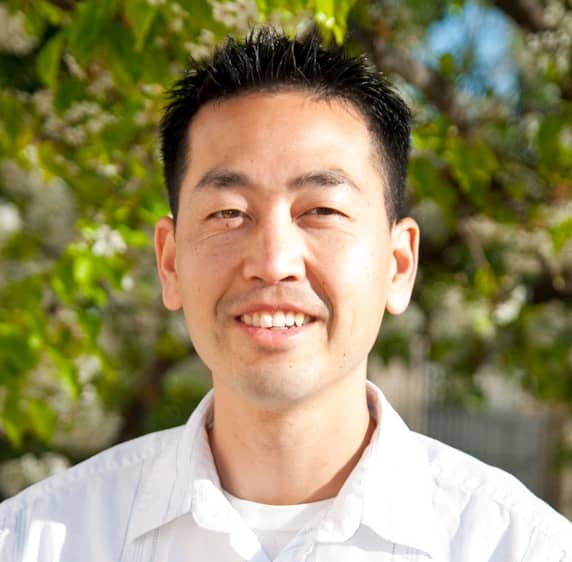
Those who have cared for a loved one suffering dementia often wonder how a good God could have allowed it. For in the beginning, God’s creation was very good. Only when sin entered the world, did the Fall corrupt the beauty of Creation (Genesis 3). Sin separated man from God and destroyed our relationships with one another.
Everything was broken, including our bodies and our minds. In fact, every person began to die the moment we were born—our bodies fading, our brains diminishing.
Because of the Fall, we do not fully love the Lord and others as we were designed to do. Because of the Fall, we fail classes and get laid off from jobs. Because of the Fall, the Bible sometimes bores us (incredible as that seems). We get angry with our family. We let down friends or just let them drift away. The Fall explains why bad things happen in a world created to be good.
Yet we find hope in Romans 8 “that the sufferings of this present time are not worth comparing with the glory that is to be revealed to us” (v. 18).
In this fallen world, “creation waits with eager longing for the revealing of the sons of God. . . . And not only the creation, but we ourselves, who have the firstfruits of the Spirit, groan inwardly as we wait eagerly for adoption as sons, the redemption of our bodies” (vv. 19, 23). Dementia is simply one form of groaning in a fallen world to show that there is more to life—that the sufferings of this present age are not worth comparing with the glory to be revealed to us.
The Curse of the Fall
The Fall makes sense of the imperfect world around us. It explains every time we lose our keys or forget a person’s name. By contrast, it also reveals the God who never forgets. For every time we grow confused or lash out in anger, we realize that our hope is neither in this life nor in ourselves (vv. 24–25). Our bodies and our minds are cursed by sin. Yet we belong to God who remembers us by name and who rescues us from groaning. He extends to us his mercy and his grace (vv. 26–27).
And his Spirit prays on our behalf when we don’t even know how to pray ourselves. Even when our brains are chaotic and disordered, God knows us. He knows our heart’s desires though we cannot find the words to express them. In fact, he knows us better than we know ourselves.
God also continues his sanctifying work in those whom he has called, although they might live with dementia for years. For once a person follow Christ, God begins shaping us into the image of his Son:
“And we know that for those who love God all things [including degenerative brain disease] work together for good, for those who are called according to his purpose. For those whom he foreknew he also predestined to be conformed to the image of his Son” (vv. 28–29a). Chronic illness does not stop our sanctification. In truth, it accelerates the process as it carries us onward to the glories of heaven (v. 30). Therefore, not even dementia “nor anything else in all creation, will be able to separate us from the love of God in Christ Jesus our Lord” (vv. 35–39).
Our Redemption in Christ
Christ picks up what has fallen and redeems it. So, even with dementia, we bear God’s image and our purpose in life remains the same: to love God and others. We remain valuable not for what we contribute to society or to our family, but because we are God’s precious child. He knew us before we were ever born and he loved us though we were enslaved to sin (5:8a). He sought us out before we believed in him, so why should we doubt that he can reach us now?
Hope in God has never promised an escape from suffering, yet neither does suffering diminish our hope in God. In fact, our relationship with God was grounded in suffering and our reconciliation with the Father was made possible through the very suffering of God’s own Son (2 Corinthians 5:17–18). So, although the flesh may fade, our soul is made anew when Christ’s suffering redeems our suffering. And though our body fades away, God remakes us as his new creation—the image of Christ—a work as good as done. The Fall may hinder that purpose for a time, but redemption guarantees God will finish what he started.
The Joy of Consummation
The final gospel word for sufferers is Consummation—our future hope. For one day, we will live eternally with Christ. Our momentary ailments of the body and the brain will not last forever (2 Corinthians 4:16–18). And there is coming a day when we will no longer forget a single memory or burst into tears of frustration—when we will experience the ultimate fulfillment of our created purpose. On that day, we will love God and others to perfection. We will bring honor to Christ as we bear his glorious image. We will no longer groan with suffering in a fallen world, but rejoice instead with the praise of unending worship. Thus, any suffering we experience in this life merely points us to the life to come.
Our Story in God’s Story
We apply this gospel to daily life by discovering how our story fits into God’s greater story. For whether we suffer from dementia, a difficult job, the sorrow of loneliness, or any number of multifaceted trials in a fallen world, our story is always part of his. God created us to glorify him and to live in communion with others. So, although the Fall may have caused divisions, Christ’s sacrifice brings unity. He took our place upon the cross. He bled and died on our behalf. And by his suffering, Christ bought us for himself and made us new.
Therefore, if God has chosen you as his child, then he’s still making you into the image of his Son and he will surely bring that process to completion. The faithful, covenant-keeping God who remembers his beloved children will never fail to accomplish that greater purpose in your life. In Christ, your story will always be enfolded into God’s greater story.
7/8/2025 11:07:53 PM





